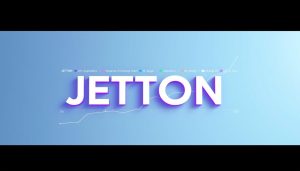Did you know the global cryptocurrency market is worth $2.28 trillion? Over 80% of cryptocurrencies have gained value recently. The expansion of blockchain scalability with TON token sharding tools is key. These tools are crucial for improving decentralized networks. They tackle performance issues and boost transaction speeds. This upgrade is vital as the demand for quicker, more efficient blockchain tech grows.
Sharding technology breaks data into smaller, easier-to-handle pieces. This greatly lessens congestion and speeds up processing. With TON (Telegram Open Network) leading, learning about these sharding tools can reveal how they streamline operations and enhance blockchain services.
Exploring these tools and tech, we find benefits that improve blockchain scalability. They also make decentralized apps more widely accepted. Whether you’re an investor, a developer, or just excited about tech, advancements in TON token sharding tools are shaping the digital future.
Key Takeaways
- Global cryptocurrency market is valued at $2.28 trillion, with 80% of cryptocurrencies showing recent growth.
- TON token sharding tools enhance blockchain scalability and mitigate network congestion.
- Sharding technology increases transaction speeds, essential for efficient decentralized networks.
- Understanding these tools can optimize operations for developers and users alike.
- Innovations in the TON ecosystem are paving the way for advanced blockchain solutions.
Introduction to TON Blockchain Technology
TON blockchain technology introduces a new way to build decentralized apps and effective services. Created by Telegram, TON overcomes common blockchain limits with its multi-blockchain design. This setup leads to faster transactions than many other networks like Ethereum1.
TON is special for its Proof-of-Stake (PoS) mechanism, making it energy-efficient with quick transactions. It’s built for safety and giving users control, using zero-knowledge proofs for privacy. Also, the ION wallet manages assets across over 17 blockchains easily1.
TON focuses on affordable transactions, helping people with less money access blockchain services. It also offers strong security with Passkeys and two-factor authentication to guard against identity theft1.
TON is growing, aiming to improve how people use decentralized apps by blending cutting-edge blockchain tech with ease of use. This forward-thinking makes TON a front-runner in the exciting blockchain world.
Understanding Token Sharding
Token sharding is a key technique in blockchain technology. It focuses on data partitioning to boost efficiency. By breaking a large dataset into smaller pieces, it can be processed faster across many nodes, improving blockchain performance.
Sharding comes in two main types: horizontal and vertical. Horizontal sharding divides data based on certain criteria. Each shard handles its own subset of data. On the other hand, vertical sharding splits data types to allow different segments to read and write independently. This helps reduce the load on nodes, making processes smoother and scalable.
Token sharding is great for handling more transactions. It spreads tasks across many nodes, speeding up transaction times. This solves a big problem in traditional blockchains, making networks manage lots of traffic without losing speed or reliability.
Using token sharding can make things faster and cheaper for users. It’s key for platforms that want to grow their user base and handle more transactions. By using token sharding, developers can build better applications that are efficient at data partitioning.
| Sharding Type | Description | Benefits |
|---|---|---|
| Horizontal Sharding | Divides data based on specific criteria, allowing concurrent processing. | Boosts transaction speed and reduces server loads. |
| Vertical Sharding | Partitions data types, maintaining operational independence. | Prevents bottlenecks and ensures efficient resource usage. |
Token sharding is vital for developers and organizations enhancing blockchain apps. Knowing how to use token sharding can lead to more innovation and better user experiences in the future.
Mastering token sharding can position your blockchain project on a path to success in an ever-evolving digital landscape.
For more information on this technology, visit this resource.
Token sharding will keep shaping blockchain’s future. Understanding this concept changes how you approach decentralized technologies234.
Benefits of TON Token Sharding Tools
TON token sharding offers major gains for the blockchain. It improves scalability a lot. This allows for processing many transactions at once without slowing down. The TON blockchain can manage up to 104,705 transactions per second, showing its amazing speed for traders5.
Sharding tools mean faster transactions. This cuts down on waiting and makes things better for users. The system’s ability to handle over 4,510,781 transactions daily shows it’s very reliable5. Such performance helps the network stay strong and makes it last longer.
Sharding tools also save money. By using less energy and handling more transactions, they cut costs for businesses. There’s chance for big token gains too, especially through staking. Early investors could see returns up to an 86% Annual Percentage Yield (APY) with projects like EarthMeta6.
Also, TON tokens boost decentralization and security. The system can support up to 231 work chains and 260 shard blockchains. This setup keeps the blockchain safe from attacks and problems5.
Key Features of Efficient Sharding Tools
When picking sharding tools, it’s key to look at the features that boost performance. Automatic data distribution is crucial. It helps balance the load evenly across different nodes. This is vital for the blockchain to scale well without losing speed or function.
TON’s sharding features are central to creating a system that scales and stays highly available. Features like fault tolerance keep the system running, even if parts fail. It’s important to integrate smoothly with current blockchain networks. This makes moving to sharding easier.
For users, simplicity in setup and management is critical. Using tools that make these aspects easier can greatly enhance how well things run. So, choosing the right tools with these important features is essential. It will make the blockchain work better and help it succeed.
TON Token Sharding Tools Overview
Exploring the world of TON token sharding tools opens new possibilities. Each tool is designed with special features and uses to improve your sharding journey.
Tool A: Features and Applications
Tool A stands out for making blockchain transactions smooth. It uses clever ways to split data, offering great speed and resource use. This makes it perfect for handling sharding needs, boosting speed and reliability.
Tool B: Features and Applications
Tool B excels in giving deep insights and reports. It helps users monitor sharded data’s performance with ease. These details help in making quick, informed choices in real-time projects, key for developers and managers.
Tool C: Features and Applications
Tool C focuses on keeping data safe while upping speed. It’s crafted to protect data but still fast. This makes it a top pick for teams who want both top security and performance in their sharding tasks.
Comparative Analysis of Leading Sharding Tools
It’s key to evaluate top sharding tools to make smart choices for your projects. This review looks at performance, growth, and how users feel about them.
| Sharding Tool | Performance | Scalability | Cost | User Satisfaction |
|---|---|---|---|---|
| Tool A | High throughput and low latency | Excellent scalability with dynamic allocation | Competitive pricing with flexible plans | Rated 4.5/5 by users |
| Tool B | Moderate performance, suitable for smaller applications | Limitations in scalability during peak load | Affordable options, good for startups | Rated 4/5 by users |
| Tool C | Exceptional performance benchmarks | High scalability with auto-scaling features | Premium pricing but includes advanced features | Rated 4.8/5 by users |
This analysis of sharding tools shows the difference in meeting TON ecosystem needs. Choose what best fits your project goals.
Keeping up with the TON token scene helps in decision-making about sharding technologies.
With detailed knowledge, you can pick the most suitable sharding tool. Keeping up with sharding tech is vital789 in the fast-paced world of decentralized networks.
How to Choose the Right Sharding Tool for Your Needs
When you pick a sharding tool for your blockchain project, several key points are crucial. First, think about how much your project will grow. This helps you know if the tool can handle your future needs. Next, consider how many transactions it will manage to keep things fast and efficient.
It’s also important to look at what features different sharding tools offer. Find ones with strong community support to make problem-solving easier. Knowing the costs can help you plan your budget better too.
To make a good choice, use these criteria:
- Scalability: See if the tool works well when under heavy use.
- Transaction Efficiency: Choose tools that keep up with a lot of transactions.
- Community Engagement: Look for tools with helpful forums and support.
- Cost Analysis: Understand the prices and what you get for your money.
By using these guidelines to select a sharding tool, you’ll make a decision that suits your project perfectly. This not only solves your current needs but also prepares you for growth and success in the blockchain world10.
Integrating TON Token Sharding Tools in Your Project
Adding TON token sharding tools to your project needs careful thought and action. Start by detailed assessment of what your project requires. This helps decide which sharding tools match your goals. It’s important to choose tools that make sharding easy to add and work well with your current systems.
Good planning is key when adding sharding tools. It means picking a framework that makes your system scale better and run faster. Getting your team ready, by training them and giving them the right tools, makes this step easier. Keep everyone updated and talk openly to ensure a smooth change.
TapSwap shares daily codes that let you earn big in-game prizes, giving out up to 400,000 free coins each day11. Using these tools can make users more active and keep them coming back. It helps especially when they get to earn by watching videos or talking in forums.
It’s important to test how well sharding tools perform once they’re part of your project. Check how they do under heavy use. Doing regular checks for improvements helps catch any issues early. The crypto world offers many ways to use sharding technology effectively12.
Expect some hurdles when putting sharding tools in place. Be ready to fix any problems with how the sharding works. Following these steps will make your project work better and grow, helping it keep up in the fast-moving world of cryptocurrency.
Best Practices for Leveraging Sharding in Decentralized Networks
It’s key to apply the right sharding best practices to boost performance in decentralized networks. Begin by evenly splitting work across shards. This avoids overloading any single shard. It boosts efficiency and ensures strong governance to keep data safe.
Using smart decentralized network strategies like keeping an eye on network activities helps a lot. It lets you fine-tune shard settings in time. For example, you can adjust shard sizes after watching how transactions happen. This keeps your blockchain running smoothly.
Also, it’s worth looking into new tech such as the NEAR Protocol ecosystem. It showcases top-notch sharding tech for decentralized projects. Developer teamwork is vital for overcoming sharding challenges. By sharing knowledge and tools, you can enhance sharding efficiency.
| Sharding Strategy | Description | Benefits |
|---|---|---|
| Even Workload Distribution | Ensures tasks are split across multiple shards effectively. | Reduces congestion and improves response times. |
| Dynamic Shard Resizing | Adjusts shard sizes based on utilization and activity. | Optimizes resource allocation and enhances performance. |
| Cross-Shard Communication | Facilitates interaction between different shards. | Improves transaction efficiency and user experience. |
| Regular Performance Monitoring | Tracks network health and performance metrics continuously. | Enables proactive management of potential issues. |
These methods lay the groundwork for scalable, high-performing decentralized networks using sharding to the max. Stick to these sharding best practices to foster an environment ripe for innovation13.
Future of TON Token Sharding Technology
TON technology’s sharding tools are heading towards a bright future. This progress shows how TON technology continues to grow. It aims to overcome current challenges. Developers are working hard to make decentralized networks scale better. They are using AI and machine learning to create new ways to manage sharding.
More projects are starting to use advanced sharding models. This makes things more efficient and improves user experience. New protocol designs will make transactions faster and cheaper. A better ecosystem for decentralized apps will emerge. By 2025, moving to Proof of Stake (PoS) will make mining greener. It will also make sharding tools work better by using less energy3.
By 2025, expect to see more rules for sharding technologies. This will attract big money from traditional financial institutions. As these institutions see the value in decentralized networks, the demand for strong sharding methods will grow. These methods will need to support more transactions.
| Key Trends | Description | Impact on Sharding |
|---|---|---|
| Emerging AI Integration | Utilizing AI for optimizing sharding processes | Increased efficiency in data management |
| Protocol Innovation | Development of next-gen sharding protocols | Faster transaction times and reduced costs |
| Regulatory Developments | Standardized regulations for cryptocurrencies | Attraction of institutional investors |
| Environmental Sustainability | Shift to PoS for improved energy efficiency | Reduction of operational costs and enhanced network performance |
The future of TON’s sharding tools depends on tech advances and the economy. These factors will influence how decentralized apps grow. They will adapt using new token sharding methods that meet user needs.
Sharding trends focus on improving platform abilities. This ensures they stay ahead in a fast-paced market. With these trends and network improvements in mind, the TON community is gearing up for major changes.
Challenges in Implementing TON Token Sharding Tools
Putting TON token sharding tools into use comes with tough hurdles. The setup’s complexity can turn away even the experts. This is because adding sharding to existing systems can open the door to security risks. These risks can lead to data leaks and system crashes.
Another big hurdle is making sure these tools work well with old platforms. This is key when dealing with many networks that must work together smoothly. Without the right integration, there could be drops in performance and more delays.
To overcome these issues, good risk management is key. Running deep tests and teaching users thoroughly can lower these hurdles. Also, having a clear rollout plan can cut down on complexity. This makes the system safer during the sharding steps.
When thinking about using TON token sharding tools, knowing these potential issues is critical. Getting a handle on the sharding challenges leads to smarter choices. This results in better use and control of this powerful tech14.
Conclusion
Sharding tools greatly improve how the TON blockchain works, making it faster and able to do more. In this article, we’ve looked at how TON token sharding can help. It doesn’t just make the blockchain scale better; it lets networks manage more transactions. This is key for blockchain to grow and for new uses to emerge.
Exploring TON technology can bring major improvements to your projects. Think about how using sharding can put you ahead in blockchain’s growth. Learning and using these tools can boost the future of digital systems in our connected world.
The outlook for sharding technology is exciting for those working with blockchain. It offers many advantages, like quicker transactions and better dependability. This marks a big change thanks to sharding. Start using these methods in your projects to unlock their full promise. This will help you advance your blockchain projects31516.





















